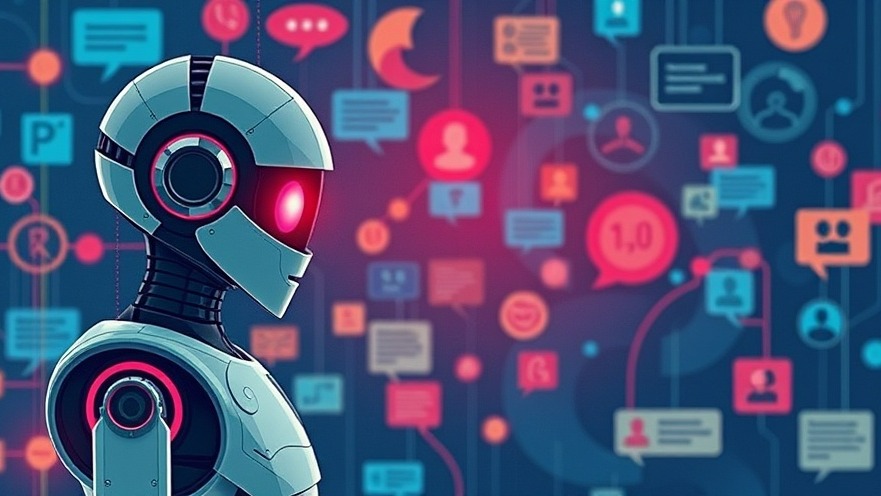
The Growing Concern: How Chatbots Are Impacting Mental Health
In an age where technology is advancing at an unprecedented pace, the role of chatbots in our lives has become increasingly significant. Recent studies reveal troubling trends suggesting that heavy use of chatbots, especially platforms like ChatGPT, may correlate with mental health issues such as loneliness and emotional dependence. As AI continues to integrate into our daily lives, understanding its impact on mental health becomes crucial.
Understanding the Research: What the Studies Reveal
Two pivotal studies from OpenAI and the MIT Media Lab uncovered a worrisome association between chatbot usage and feelings of isolation. The first study analyzed over 4 million conversations, while the second engaged 981 participants in daily interactions with ChatGPT over four weeks. Both studies highlighted that while casual users generally feel neutral about their experiences with chatbots, a significant portion identified as "power users" exhibited signs of increased loneliness.
The data is alarming: higher chatbot engagement often leads to deteriorated social interactions and heightened feelings of loneliness. These findings parallel earlier explorations into the effects of social media on mental health, especially concerning young individuals, as evidenced by advisories issued by health authorities.
Social Networks and Chatbots: A Cautionary Tale
Reflecting on the adverse effects attributed to social networks, there's an urgent need for AI companies to learn from the social media missteps of the past. Similar to Instagram and TikTok, which the Surgeon General warned could negatively impact adolescent mental well-being, chatbots are poised to become even more immersive and personalized. Will these platforms enhance social engagement or deepen feelings of isolation?
Lawmakers are now actively discussing the implementation of regulations to mitigate potential harms, emphasizing the need to balance technological advancement with the well-being of users. The consequences of neglecting these issues can be dire, as highlighted by heartbreaking incidents involving chatbot interactions related to youth mental health crises.
The Impact of Personalization: Chatbots vs. Human Interaction
One of the most intriguing aspects of chatbot technology lies in its ability to emulate human interaction. Chatbots can deliver personalized responses and engage users in conversation that feels human-like, which may deceive users into replacing human connections with artificial ones. This artificial emotional support can create dependency, leading users to feel more isolated as their relationships with real people deteriorate.
This evolving dynamic raises questions about the ethical implications of designing chatbots meant to be engaging and supportive. Are developers inadvertently creating tools that could exacerbate feelings of loneliness? The responsibility lies not just with AI companies but also with society, to ensure that human connection remains paramount in an era of digital companionship.
Looking Ahead: What Can Be Done?
The data collected on the intersections of technology and mental health illustrate critical areas needing attention. Researchers and developers must prioritize user welfare and continually assess the psychological impact of AI interactions. Moreover, informed policy regulations must evolve alongside technological advancements to safeguard users.
To mitigate risks, platforms can implement usage limits, transparency around chatbot capabilities, and mental health resources for users who may experience distress. Ultimately, fostering a conversation on the importance of real human connections amidst rising chatbot employment is essential for nurturing mental health.
Call to Action: Reflect on Your Chatbot Use
As we embrace the wave of advancement in AI, it’s vital to reflect on our interactions with chatbots and their emotional impacts. Are they serving as a tool for support, or are they contributing to feelings of loneliness? We must be mindful of how we leverage technology and advocate for solutions that promote balanced engagement. Prioritize real-world connections to ensure technology enhances—not replaces—our social experiences.
 Add Row
Add Row  Add
Add 




 Add Row
Add Row  Add
Add 

Write A Comment